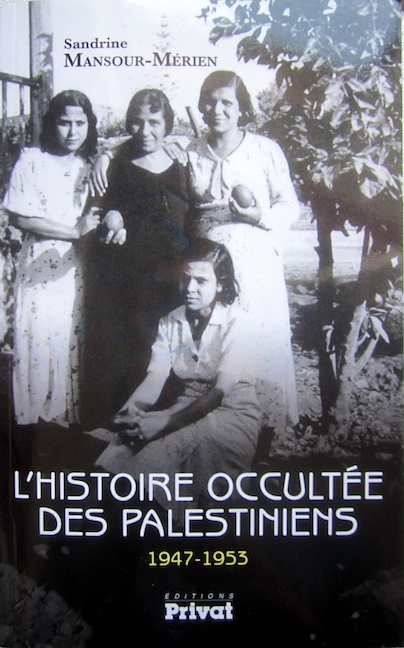Conventional wisdom tells us that if we wish to understand the condition of the oppressed, it is best not to ask their oppressor, but historians of the Middle East have no such luxury. The archives of Western powers that once presided over colonial administrations in the region, and continue to exert their influence today, are a necessary evil for historians working on virtually any topic in Middle East history. However, the biases of these records and the governments that produced them do not entirely undermine their ability to highlight the voices of the region’s local communities. In fact, the potential of these archives to make hidden historical actors speak, when utilized properly by the historian, is part of what imbues them with an innate intellectual value irrespective of the context in which they were produced.
Episode #122 of Ottoman History Podcast is a discussion with Sandrine Mansour-Mérien, an affiliated researcher at the University of Nantes with over ten years of experience in the French archives. Mansour-Mérien is a scholar of Palestine whose recent book, entitled L`histoire occultée des Palestiniens (1947-1953), utilizes new sources for the study of the Nakba period, during which the foundation of the state of Israel coincided with the expulsion of hundreds of thousands of Palestinians from their homeland. Yet her sources are not those of the Zionist archives in Israel, nor the foreign records office of the British Mandate, which governed the region during the decades leading up to the Nakba. Instead, she relies on the copious records of relatively uninvolved but not disinterested French observers, highlighting the potential value of French sources for the study of a wide variety of topics that go beyond regions of French colonial administration.

[Cover of Sandrine Mansour-Mérien, L`histoire occultée des Palestiniens (1947-1953)]
Mansour-Mérien’s insights regarding the French Diplomatic Archives in Nantes are of great relevance for historians, Ottoman or otherwise. As she explains, the entire body of diplomatic correspondence with embassies and consuls throughout the world since the French Revolution is stored not primarily in Paris, but in this rich archive of a small city in the West of France. These records also include those of French colonies, mandates, and protectorates (this excludes Algeria) such as Syria, Lebanon, and Tunisia. Since virtually every city of commercial significance in the Mediterranean had some French diplomatic presence by the latter half of the nineteenth century, these archives are an indispensible asset for historians of the Middle East.
Throughout the conversation, Mansour-Mérien tells the ins and outs of the French archives while sharing some tips and tricks from her own experience. She stresses the wealth of “indigenous” sources in the archive, which is replete with letters, documents, and periodicals written in the local languages of the region, including Ottoman/Turkish, Arabic, and Armenian, mixed in with boxes of documents associated with high colonial administration. Her observations remind us that sometimes the obvious source is not always the most insightful; just as French observations about Palestine offer a new perspective on a contentious and crowded history, conversations between the French and British or Germans about the Russians or Ottomans often offer great context for the local situation in the Middle East. For this reason, the cunning researcher will leave Nantes not just with the “French imperial perspective,” but with a multitude of voices from the history of their given region and topic.
In addition to her own scholarship, Sandrine Mansour-Mérien carries out professional research for scholars who are unable to make the trip to Nantes; however, she stresses the value of being at the archive amidst the jungle of inventories and boxes. Innovative history arises not only from access to good sources, but also from creativity when deciding where to look and reserving the time to do so.
CONTRIBUTOR BIOS
Sandrine Mansour-Mérien is an affiliated researcher at the University of Nantes. Her work focuses on Palestinian history, and in particular the period of the Nakba.
Chris Gratien is a doctoral candidate at Georgetown University whose research focuses on the social environmental history of the Ottoman Empire and the modern Middle East.
Listen to Episode #122 of Ottoman History Podcast with Sandrine Mansour-Mérien entitled “Hidden Histories at the French Archives"